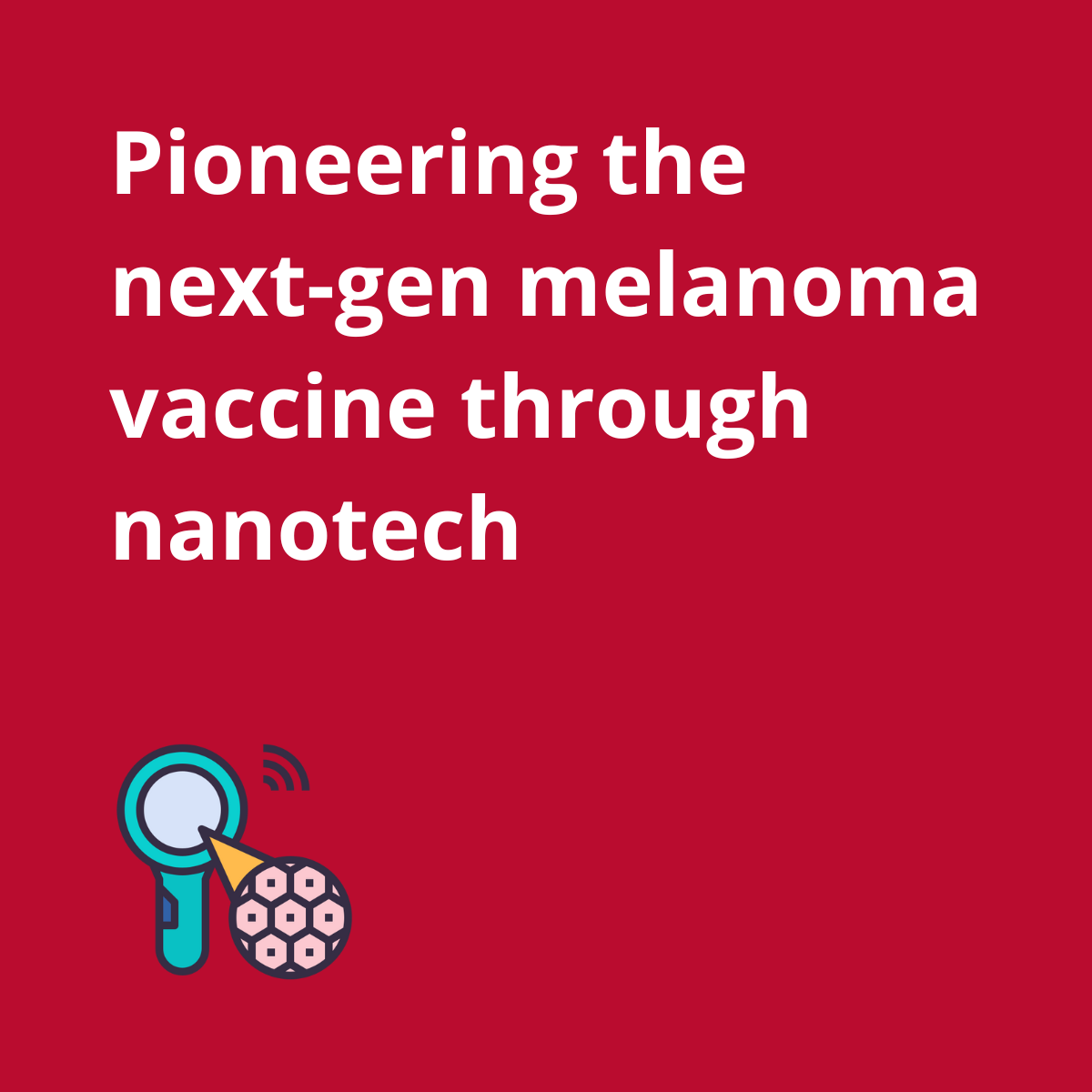Melanoma, a type of skin cancer originating from melanocytes, has become a global health concern due to its rising incidence. It ranks as the fifth most prevalent cancer in men and the sixth most common in women [1].
To advance in the fight against this disease, a promising candidate therapy is being tested in a phase 3 clinical trial aimed at combating melanoma in patients who have undergone surgery. The treatment combines a messenger ribonucleic acid (mRNA-4157), lipid nanoparticles (LNPs), and a monoclonal antibody, pembrolizumab (Keytruda), to produce a personalized mRNA anti-cancer vaccine [2].
What is a personalized mRNA anti-cancer vaccine?
This therapy, developed by Merk and Moderna, is based on mRNA-4157, a mRNA-based individualized neoantigen therapy (INT). It represents a personalized approach to cancer treatment, as this therapy takes advantage of the unique mutations present in the patient’s tumor DNA sequence to create specific neoantigens. These neoantigens, not found in normal cells, serve as targets for the immune system to recognize and attack the tumor.
Upon administration, the mRNA instructs cells to produce up to 34 neoantigens, eliciting a targeted immune response against the tumor. These neoantigens are selected based on those found in the tumor DNA, ensuring specificity.
On the other hand, the monoclonal antibody functions by enhancing the immune system’s ability to detect and combat tumor cells through anti-programmed death receptor-1 (PD-1) therapy. By blocking the interaction between PD-1 receptors on T cells and their ligands expressed by cancer cells, pembrolizumab releases the brakes on the immune system, allowing it to target and destroy cancer cells effectively.
This trial phase aims to enroll 1,089 patients, with the results expected to be published by 2029.
Lipid Nanoparticles are indispensable for mRNA vaccines
However, mRNA alone cannot efficiently reach the cells to produce the neoantigens; a stable and effective delivery system is needed to protect mRNA from nuclease degradation while enhancing its effectiveness.
To ensure the therapeutic efficacy of mRNA vaccines like V940, mRNA is encapsulated into a nanoparticle formulation. LNPs have garnered attention from researchers since their enormous success in COVID-19 vaccines. The specific composition of these nanoparticles plays a crucial role in facilitating the efficient delivery of the mRNA to its target cells [3].
In the case of melanoma therapy, V940 must be packaged within LNPs and administered directly into the arm to target tumor cells effectively. This is not the only cancer vaccine that uses LNPs; the BioNT11 vaccine developed by BioNTech is an mRNA cancer vaccine with four mRNA tumor-associated antigens encapsulated in liposomes to treat melanoma, which is currently undergoing a phase 1 clinical trial.
The potential of nanotechnology to advance in cancer research
This new cancer vaccine exemplifies the advancement of nanoparticle technology and its potential in developing innovative therapies for cancer treatment. As we continue to push the boundaries of nanotechnology and biomedicine, we move closer to a future where melanoma and other cancers can be effectively managed.
At DIVERSA, we are at the forefront of advancing nanoparticle technology for mRNA delivery. We will soon launch our innovative mRNA Delivery Nanoparticle Reagent, a ready-to-use nanoparticle formulation with impressive in vitro and in vivo results comparable to already approved lipid nanoparticles for clinical application.
Furthermore, our lipid nanoparticles can be engineered to include fluorescent markers, facilitating straightforward tracking of intracellular delivery. Combined with its rapid intracellular delivery, scalability, and stability, our nanoparticle formulation provides a user-friendly, fast, and efficient solution for mRNA delivery in cancer research.
It will be out very soon!
At DIVERSA, we are dedicated to supporting your research endeavors by providing cutting-edge tools and technologies that simplify the process and enhance efficacy in your experimental procedures.
Get in touch with us for more info about how our reagents can help you!
References
- Ahmed B, Qadir MI, Ghafoor S. Malignant Melanoma: Skin Cancer-Diagnosis, Prevention, and Treatment. Crit Rev Eukaryot Gene Expr. 2020;30(4):291–7. doi: 10.1615/CritRevEukaryotGeneExpr.2020028454.
- Carvalho T. Personalized anti-cancer vaccine combining mRNA and immunotherapy tested in melanoma trial. Nat Med. 2023;29(10):2379-2380. doi: 10.1038/d41591-023-00072-0.
- Barbier AJ, Jiang AY, Zhang P, Wooster R, Anderson DG. The clinical progress of mRNA vaccines and immunotherapies. Nat Biotechnol. 2022;40(6):840–54. doi:10.1038/s41587-022-01294-2

